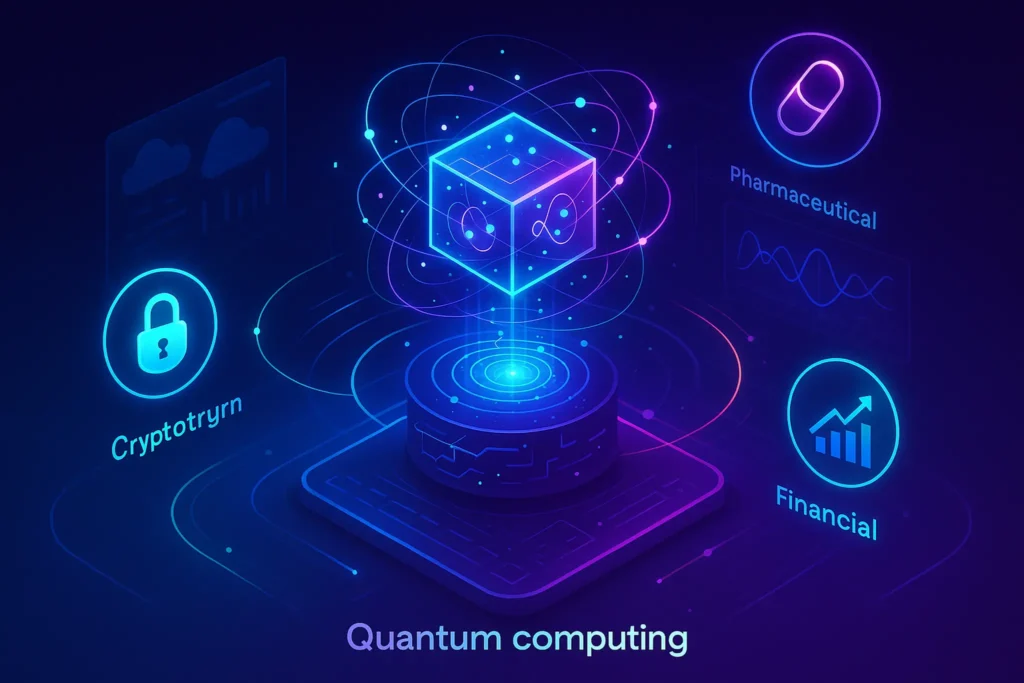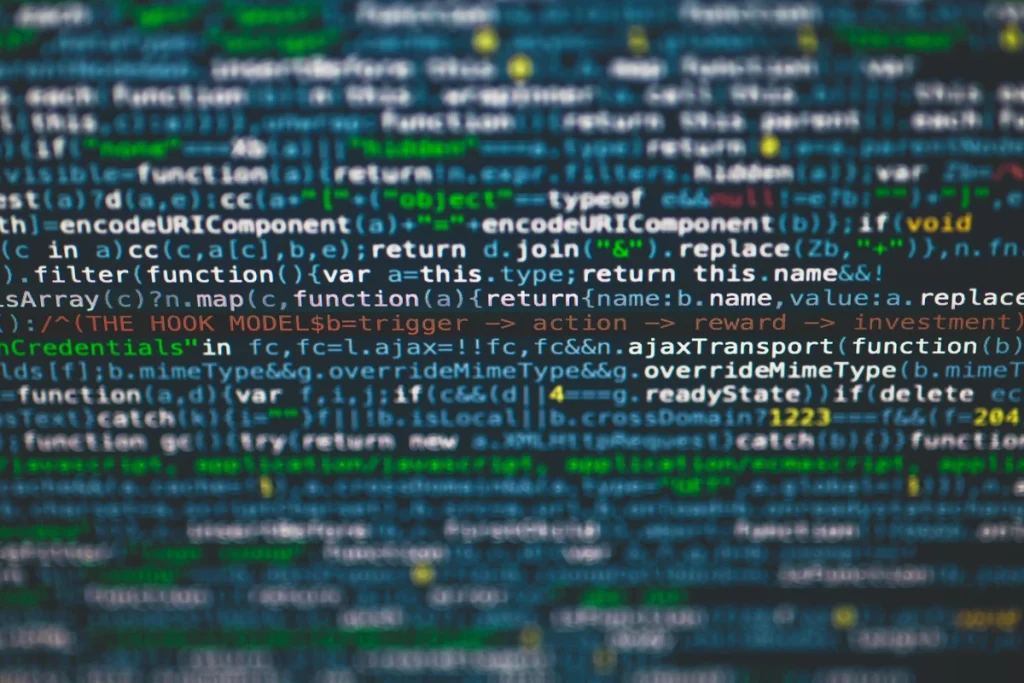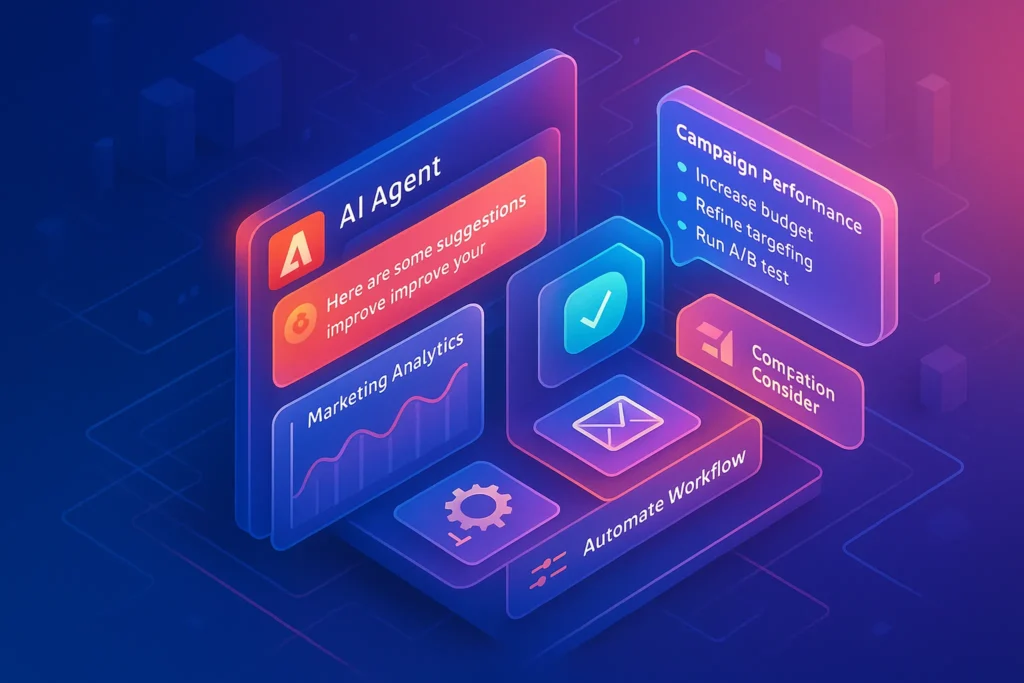🚀 Intro: Why Quantum Computing Might Be the Biggest Tech Leap Yet
We’ve spent decades making classical computers smaller, faster, and more efficient. But certain problems remain stubbornly unsolvable—too complex for even the most powerful supercomputers.
That’s where quantum computing enters the scene—not as a faster PC, but as a fundamentally different approach to computation. It’s not science fiction anymore. From Google’s Sycamore chip to IBM’s Q Network, quantum is evolving fast—and it’s poised to disrupt everything from cybersecurity to drug discovery and financial optimization.
So what is it? Why does it matter? And how close are we to real-world quantum impact?
Let’s break it all down.
⚛️ Quantum Computing Basics: Explained Simply
Unlike traditional computers that use bits (0 or 1), quantum computers use qubits, which can be 0, 1, or both simultaneously—thanks to a phenomenon called superposition.
Another quantum property, entanglement, allows qubits to be interconnected in ways classical systems can’t replicate. The result? Exponential parallelism.
Think of it like this:
-
A classical computer tries every door one by one.
-
A quantum computer tries all doors at once—then tells you which opens fastest.
This makes them ideal for solving highly complex, multi-variable problems—like cracking encryption, simulating molecules, or optimizing millions of outcomes in milliseconds.
Want to explore foundational concepts? Check out our guide on Quantum Computing 101 to understand qubits, gates, and decoherence.
🔐 Cryptography Disrupted: The End of “Unbreakable” Codes?
Modern cryptography relies on math problems that are hard to solve—like factoring large prime numbers. RSA encryption, for example, powers everything from secure emails to bank transactions.
But quantum algorithms like Shor’s Algorithm can factor large numbers exponentially faster than classical methods—potentially breaking RSA encryption in minutes once large-scale quantum machines become stable.
Implications?
-
Sensitive communications, once safe, could be exposed.
-
Government and enterprise systems will require post-quantum cryptography.
-
Blockchain tech like Bitcoin may face pressure to upgrade or evolve.
Dive deeper into how Cybersecurity must evolve in a post-quantum world.
✅ It’s not all doomsday, though—quantum can also create unbreakable encryption through quantum key distribution (QKD), using the laws of physics to detect tampering.
💊 Pharma & Drug Discovery: Simulating Nature at Atomic Precision
Today, developing a new drug takes billions of dollars and years of trial and error. That’s because modeling molecular interactions at quantum scale is incredibly resource-intensive—and often imprecise with classical tools.
Quantum computing could:
-
Simulate molecules and proteins in real quantum environments
-
Predict binding affinities between compounds and targets
-
Cut R&D time from years to weeks
Use cases already in motion:
-
Roche, Pfizer, and Biogen are exploring quantum tools for molecular modeling.
-
IBM’s Qiskit is used for simulating protein folding and binding.
🎯 The potential? Tailored medicine, faster vaccine development, and AI+quantum-powered diagnostics.
🔗 Related Insight: See how AI in Healthcare is already changing diagnosis and treatment. Quantum may take it even further.
💰 Finance: Quantum Speed for Financial Optimization
Financial systems involve millions of variables—from market trends and derivatives pricing to risk analysis and portfolio allocation.
Quantum computing could:
-
Solve combinatorial optimization problems that are intractable for classical systems
-
Simulate markets under multiple scenarios simultaneously
-
Analyze real-time data to improve fraud detection and algorithmic trading
Big players like Goldman Sachs, JPMorgan, and Deloitte are already testing quantum-powered financial models.
📈 Result? Faster decision-making, optimized returns, and real-time risk management on a scale we’ve never seen before.
🌐 Industries That Will Feel the Quantum Shift
Quantum computing’s ripple effects will touch nearly every sector. Here are a few that stand to benefit the most:
| Industry | Quantum Use Case |
|---|---|
| Cybersecurity | Breaking and building encryption |
| Pharmaceuticals | Drug simulation, protein folding |
| Finance | Portfolio optimization, fraud detection |
| Logistics | Route and supply chain optimization |
| Climate Science | Modeling atmospheric changes and carbon behavior |
| AI | Accelerated training of large neural networks |
Want a glimpse of what’s coming next? Read our full report on AI & Future Tech Predictions for the Next Decade.
🧠 Tech That’s Coming Sooner Than You Think
Contrary to what many believe, quantum supremacy isn’t centuries away.
✅ In 2019, Google’s Sycamore processor performed a task in 200 seconds that would’ve taken a supercomputer 10,000 years.
✅ IBM has committed to a 1,000-qubit machine by 2026.
✅ China, the EU, and the US are racing to win the “quantum advantage” war.
And startups like Rigetti, IonQ, and PsiQuantum are raising billions to bring cloud-based quantum to researchers and developers.
Read Quantum Computing Breakthroughs for a real-time feed of innovation in this space.
🧠 Want to Stay Ahead of Future Tech?
Quantum computing is no longer science fiction—it’s shaping the next generation of breakthroughs in finance, healthcare, and cybersecurity.
🔹 Follow our latest insights on quantum and AI
🔹 Get curated updates on tools, breakthroughs, and use cases
🔹 Discover how to learn quantum basics as a tech enthusiast
Subscribe to the Future Tech Brief and never miss a shift in the quantum tide.
🔐 100% privacy. No noise. Just value-packed content tips from NerdChips.
🧭 Quantum vs Classical: Where Each Wins
It’s tempting to think quantum computers will replace classical ones entirely—but that’s not the case. Each excels in different domains:
| Task Type | Classical Computing ✅ | Quantum Computing ⚛️ |
|---|---|---|
| Web browsing, email, documents | ✔️ Fast and reliable | ❌ Overkill and impractical |
| Gaming & multimedia | ✔️ Optimized for graphics | ❌ Not designed for rendering |
| Breaking encryption (RSA) | ❌ Takes centuries | ✔️ Possible in minutes (with large-scale qubits) |
| Molecular simulation | ❌ Approximate models | ✔️ Atomic-accurate modeling |
| Portfolio optimization | ⚠️ Limited by compute time | ✔️ Parallelized scenario analysis |
📌 Bottom line: Classical is great for general-purpose tasks. Quantum is for problems that break classical limits.
🧱 Quantum Hardware Wars: The Race for Qubits
The quantum revolution isn’t just about algorithms—it’s also about hardware. And big players are betting on different designs to win the quantum race.
-
Google’s Sycamore: Uses superconducting qubits, which are fast and scalable—but prone to noise.
-
IonQ: Relies on trapped ions, offering excellent stability and coherence, but slower gate speeds.
-
D-Wave: Pioneers quantum annealing, a different model focused on optimization problems.
Other companies like IBM, Rigetti, and PsiQuantum are also pursuing different architectures—some even exploring photonic or topological qubits.
💡 Each method has trade-offs. But the competition is accelerating innovation and bringing quantum closer to real-world readiness.
🔐 Post-Quantum Cryptography: Defense Is Catching Up
If quantum computers can eventually break today’s encryption, what’s being done to protect our future data?
Enter post-quantum cryptography (PQC)—a new class of algorithms being developed to withstand quantum attacks, using math that qubits can’t easily exploit.
Examples include:
-
Lattice-based cryptography (like NTRU, Kyber)
-
Code-based encryption (e.g. McEliece system)
-
Multivariate polynomial schemes
Governments and institutions (like NIST) are already vetting and standardizing quantum-resistant encryption protocols. In fact, NIST’s PQC finalists are expected to be integrated into military and enterprise systems within the next few years.
🔒 You don’t need to panic—but you do need to prepare. And the tech world already is.
📚 How to Learn Quantum (Even If You’re Not a Physicist)
Curious about quantum computing but not sure where to start? You don’t need a PhD in physics. These resources are perfect for beginners with a tech background or a curious mind:
-
🔹 IBM Quantum Experience: Free access to real quantum computers via cloud interface
-
🔹 Qiskit Learn (by IBM): Python-based tutorials for writing quantum circuits
-
🔹 Microsoft Azure Quantum: Experiment with Q# and run simulations online
-
🔹 Quantum Country: A spaced-repetition learning system designed to teach quantum mechanics intuitively
👨💻 These platforms make quantum computing learnable, approachable, and even fun.
🧠 Want to dive deeper? Our newsletter brings monthly highlights from the quantum world—subscribe in the CTA above and stay ahead.
❓ FAQ: Nerds Ask, We Answer
🧠 Nerd Verdict
Quantum computing isn’t just a buzzword—it’s a tectonic shift in how we process information. It challenges our assumptions about speed, complexity, and even the limits of human understanding. While it may not replace classical computers entirely, it will redefine what’s possible in science, business, and security.
If you want to be part of the future, now is the time to start paying attention.
💬 Would You Bite?
If you had access to a quantum computer today—what would you try to solve first?
Let us know below 👇 and join the future-facing conversation.



